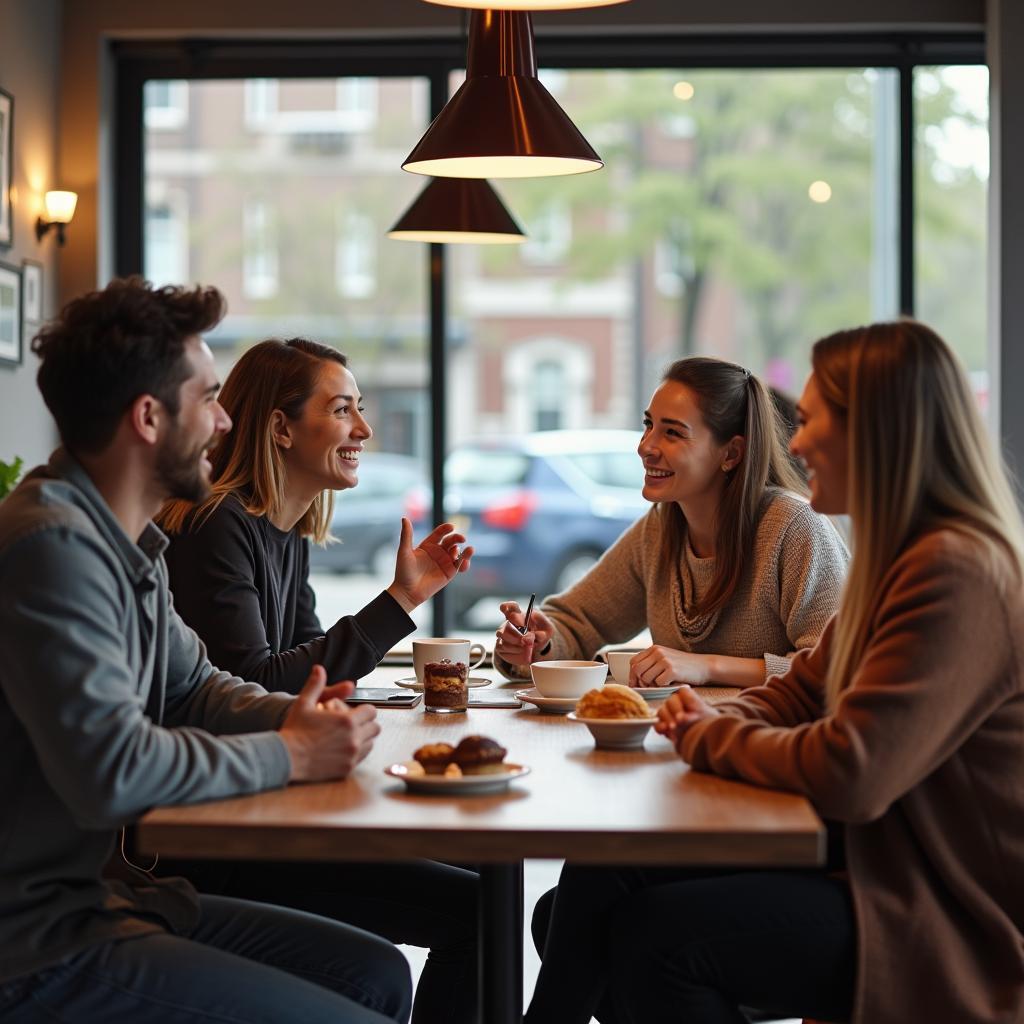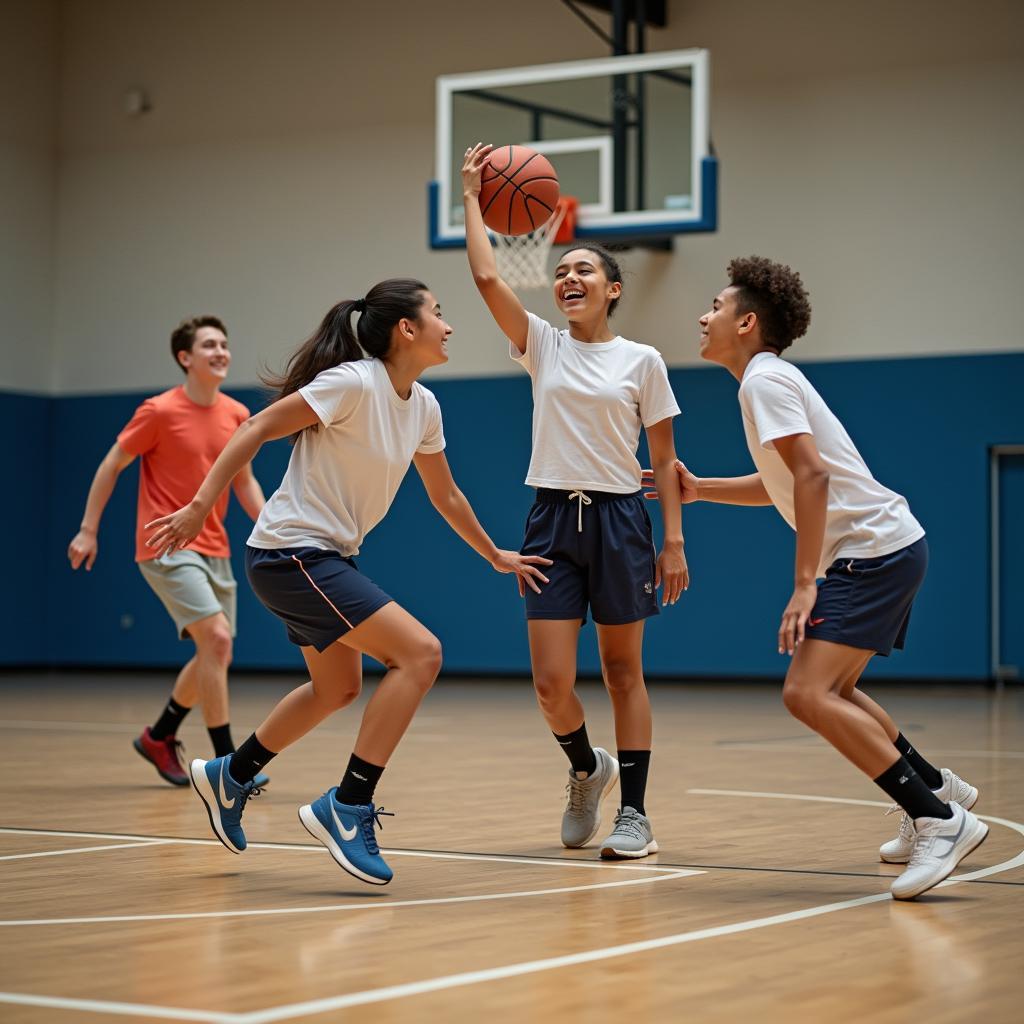[describe a leisure activity you enjoy] One of the most common topics in IELTS Speaking examinations revolves around social activities and friendships. Here’s a comprehensive guide to help you excel in this topic.
Part 1: Common Questions and Sample Answers
Typical Questions:
- Do you often spend time with friends?
- What activities do you usually do with friends?
- Where do you usually meet your friends?
Sample Answer (Band 8-9):
“I regularly meet up with my friends, typically two or three times a week. We often engage in various activities, from casual coffee catch-ups to more adventurous pursuits like hiking or playing basketball. Our favorite meeting spot is this cozy café in the city center, which has become our go-to place for socializing and unwinding.”
 Friends enjoying coffee and conversation at cafe
Friends enjoying coffee and conversation at cafe
Part 2: Cue Card
Topic:
Describe an activity you do with friends in your free time
You should say:
- What the activity is
- Who you do it with
- Where you do it
- And explain why you enjoy doing it
Sample Answer (Band 8-9):
“I’d like to talk about our weekly basketball sessions, which have become a cherished tradition among my friends and me. We’re a tight-knit group of six people who religiously meet every Saturday morning at the local community center’s indoor court.
What makes these sessions particularly special is that they’re not just about the sport itself. It’s become our way of maintaining our friendship bonds while staying active. We started this routine about two years ago, and it has evolved into something more than just a game.
The beauty of this activity lies in how it combines physical exercise with social interaction. We usually warm up with some casual shooting and catching up on each other’s lives. Then we divide into teams and play for about an hour, with plenty of good-natured competition and laughter.
I particularly enjoy this activity because it serves multiple purposes – it keeps us fit, helps maintain our friendships, and provides a regular escape from our busy work lives. The post-game conversations over breakfast are equally important, where we share our weekly experiences and support each other through life’s challenges.”
 Friends enjoying basketball game at indoor court
Friends enjoying basketball game at indoor court
Part 3: Discussion Questions
Q1: How have social activities changed in recent years?
Sample Answer (Band 8-9):
“Social activities have undergone significant transformation in recent years, primarily due to technological advancement. While traditional face-to-face interactions still exist, there’s been a notable shift towards virtual gatherings and hybrid social events. People are now more likely to combine online and offline elements in their social activities, creating more flexible and inclusive ways of maintaining friendships.”
[describe a place in your city where people gather to relax]
Q2: Why do some people prefer individual activities to group activities?
Sample Answer (Band 8-9):
“This preference often stems from various personal and psychological factors. Some individuals value solitude for its ability to provide mental clarity and self-reflection. Others might find group dynamics overwhelming or prefer the flexibility and autonomy that comes with pursuing activities alone. It’s also worth noting that individual activities often allow for more focused personal development and self-paced progress.”
Key Vocabulary and Phrases
- Tight-knit group (adj.) /taɪt nɪt/ – closely united or bound together
- Cherished tradition (phrase) /ˈtʃerɪʃt trəˈdɪʃən/ – valued custom or practice
- Good-natured competition (phrase) /ɡʊd ˈneɪtʃərd kɒmpəˈtɪʃən/ – friendly rivalry
- Maintain friendship bonds (phrase) /meɪnˈteɪn ˈfrendʃɪp bɒndz/ – keep relationships strong
Examiner’s Tips:
- Develop your answers with specific examples and details
- Use appropriate tenses consistently
- Include personal experiences to make answers more authentic
- Practice fluency by recording yourself speaking
- Focus on using a variety of vocabulary and complex structures naturally
[is idiom a tip in ielts] Remember to maintain natural speech patterns while incorporating sophisticated vocabulary and structures appropriately.


